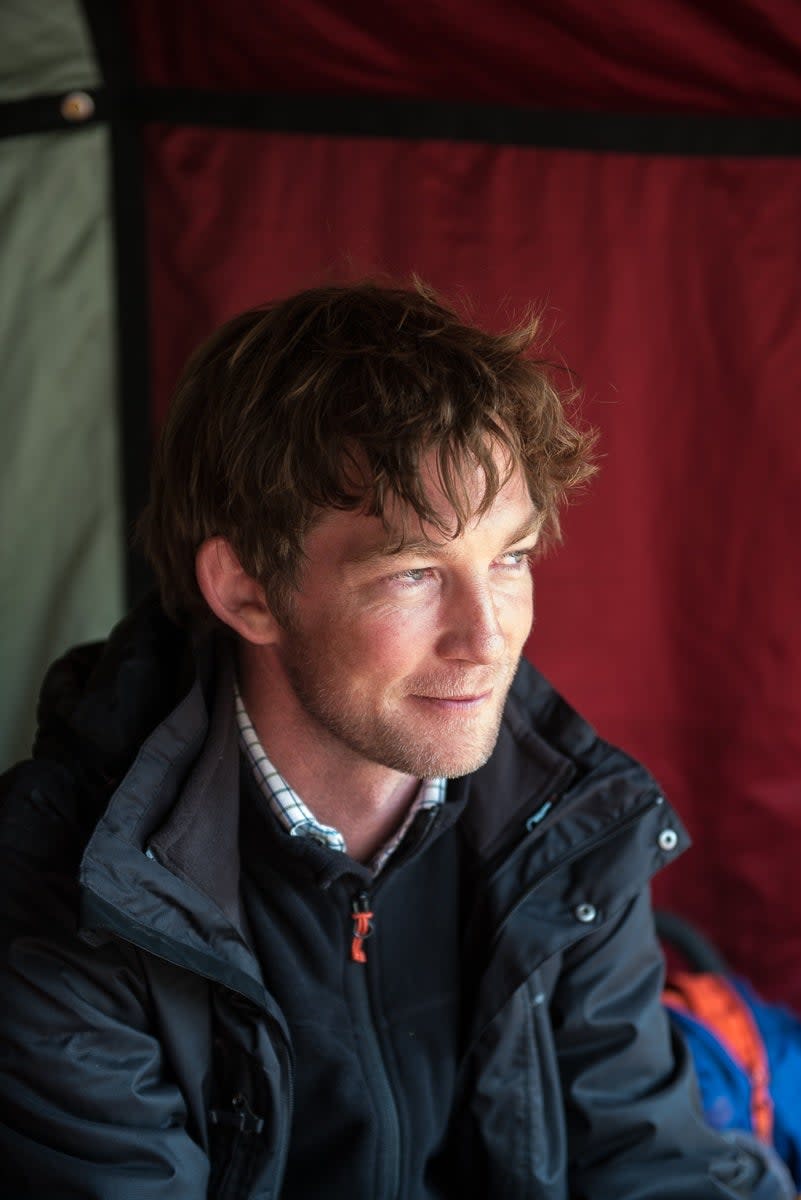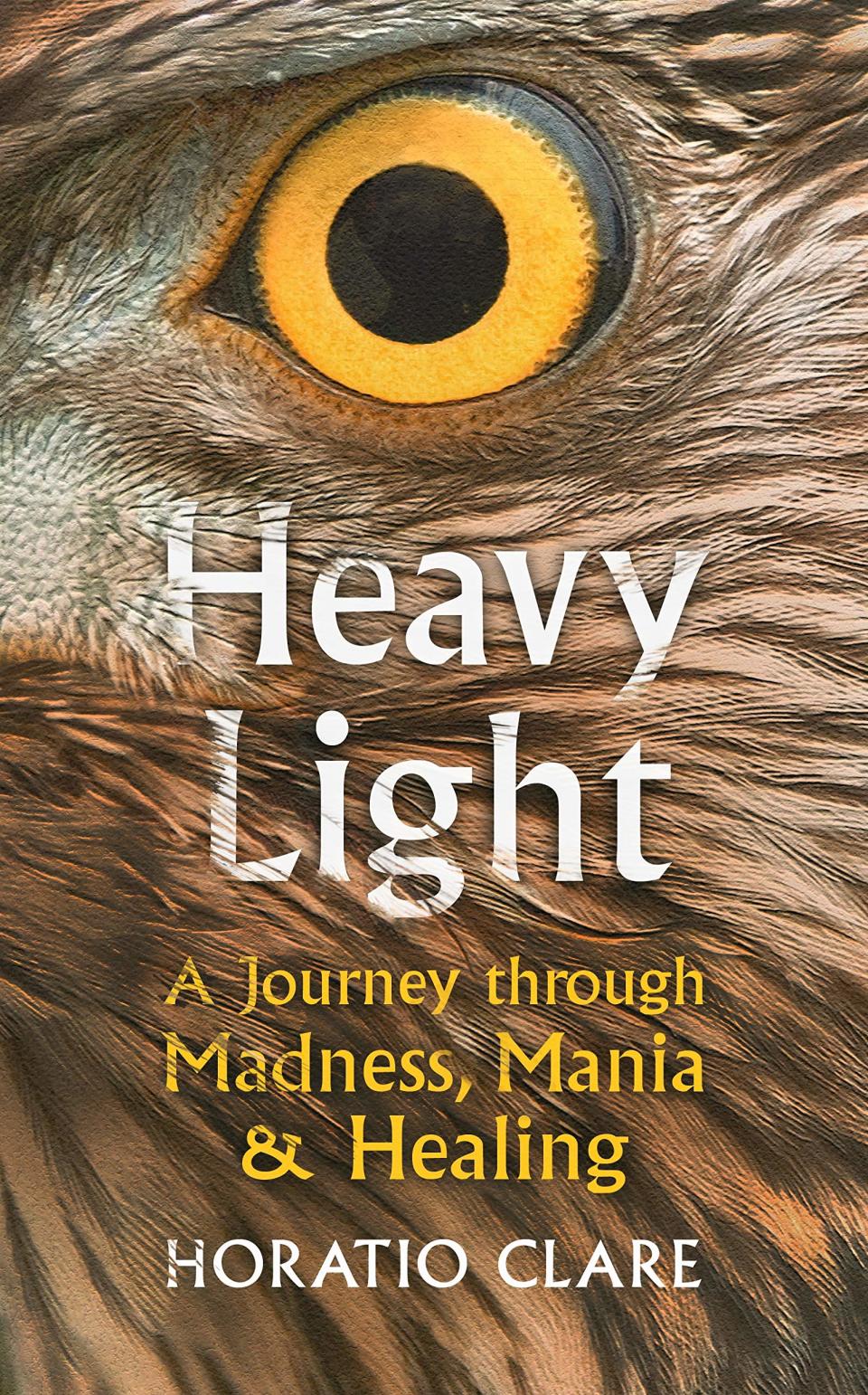Horatio Clare: ‘My psychosis was brought on by cannabis’

Horatio Clare
(Chatto)Horatio Clare still flinches in ‘horror and shame’ whenever he thinks back to his behaviour just over two years ago.
After a series of increasingly deranged psychotic episodes, the acclaimed travel and nature writer, whose subjects include the migration of swallows, travelling on container ships across the globe, and his own childhood growing up in the Black Mountains, suffered a catastrophic mental breakdown at the end of 2018, was sectioned under the Mental Health Act and spent several weeks in a locked ward in a hospital in Wakefield.
Clare was given a bipolar diagnosis, prescribed heavy anti-psychotic drugs and told he would have to take them for life. But it was only after he was discharged from hospital that he began his journey to recovery after rejecting almost everything his doctors had told him.
Today, speaking on the telephone from his home in Hebden Bridge, West Yorkshire, he refers to what happened as ‘my cannabis psychosis’. He does not believe that his bipolar diagnosis was a helpful one, nor that taking the drugs was going to help him in the long term.
Instead he chose a different path to recovery and so far, he says, he has proved himself right.
The first half of the book reads like a John le Carré novel on acid
We are discussing his new book, a memoir, Heavy Light, aptly subtitled ‘a journey through madness, mania and healing’, which is a candid and at times shocking account of what happened.

The first half of the book reads like a John le Carré novel on acid, from the opening scene at Manchester airport (Clare and his family were going on a skiing holiday to the Dolomites) where he was convinced everyone around him was working for the Secret Service, signalling to each other though tiny winks and nods, to his arrival at the hotel, where he thought a Ukrainian couple were Russian delegates from the Kremlin.
His delusions, described in the same lucid style that has won him several writing prizes, continued. The woman serving coffee at the local café was a veteran of an Italian parachute unit. Mirrors on the wall concealed surveillance cameras. In the adjoining hotel, random people were monitoring his movements, most likely trained snipers. He would routinely check the hotel perimeters for bombs every night.
“Everything I describe in the book I can remember with great vividness,” he says. “It’s a strange thing putting it all down, incredibly therapeutic in one way, but gruelling and awful in another”. It makes for gruelling reading too, but is also utterly compelling.
London Minds
March 10 & 17
Recharge your mental health & wellbeing at London Minds (10th & 17th March). The first in a free event series for Evening Standard readers that will show you how to make achievable changes to sleep, mindfulness, exercise and nutrition, to build and maintain positive mental health and wellbeing. Hosted online by Kate Silverton; speakers include Arianna Huffington, Dr Alex George, Matthew Walker, Jamie Windust, Scarlett, Curtis, Pip Black and many more. Register for free at londonminds.standard.co.uk
After the disastrous holiday, he broke up with his long-term, and, it must be said long-suffering, partner Rebecca, and went completely off the rails, as his delusional fantasies grew in intensity. Listening to Samuel West reading a Sebastian Faulks novel on audiotape, he suspected ‘controlling forces’ were at work.
Watching Kylie Minogue in a documentary, he realised the feeling between them was mutual and they would get married. A neighbouring farmer he bumped into was surely his mother’s secret love-child and his half-brother, while flecked shadows on the wall in his flat from street lights below were conveying coded messages.
At one stage, believing he was had orders from an MI6 agent, he got out of the car, took off the handbrake and pushed the car forward until it crashed into a ditch, before stripping naked and trying to break his own nose.
“I didn’t hear any voices, but I formed convictions within my delusions and would take what the radio said as confirmation.”
Extraordinarily, after the police arrested him “on suspicion of driving under the influence”, he managed to blag his way through, not just the police interview, but the interview with a psychiatrist too, “thanks to my posh voice, knowing what to say and how to say it,” because, he says, “in breakdown it’s the people nearest to you who can add the most stress, but dealing with strangers was actually refreshing, because they came to me with no preconceptions and so I answered as the person I was perceived as. There’s quite a lot of you that’s still in control because underneath, the basic person is there”.
Eventually his brother Alexander turned up and had him sectioned, in a part of the book that makes for really painful reading, especially Clare’s confusion and raw shame as he began to understand what was happening to him.
“Of course I’d rather I hadn’t gone anywhere near any of this and regret most strongly sparking if off, not so much for me, but for my family and the people around me. But it had to happen,” he says. “I’d lived lies and dissatisfactions and worries for years. I’m glad I broke down, cracked up and lost it. Thank God, really. It was probably this or death. Some part of me desperately needed to start again and to think about things from a different point of view.”
After his discharge from the psychiatric hospital in Wakefield, Clare continued to take the anti-psychotic drug Aripiprazole for a short time - as a condition of his discharge - but then, without telling anyone including Rebecca - with whom he had reconciled on the understanding that he would stay on it - he decided to stop taking it.
He had come to the conclusion that his mania, exacerbated by soaring levels of stress, overwork, too much alcohol and not enough sleep, had been induced by smoking cannabis. He describes two similar but less severe episodes - in 2008 and again in 2016 - and the common denominator was smoking cannabis.
Today he is unequivocal about the dangers of cannabis: “I will never smoke it again. Strong cannabis is a destroyer of mental health and of lives, and the earlier you smoke it, the more damage it does. Prohibition means the substance is stronger, so what’s available, particularly to young people, can be lethal. The national conversation should move away from ‘cannabis is probably harmless’ to ‘it very likely isn’t, and the harm it does is catastrophic’”.
“We need to be much more open about that,” he says. “I can also say with absolutely certainty that I haven’t met anybody who’s been sectioned - and I’ve met a great many - who didn’t have a relationship with cannabis. You don’t know until it destroys everything, that you’re the person who it’s going to destroy.”
The national conversation should move away from ‘cannabis is probably harmless’ to ‘it very likely isn’t, and the harm it does is catastrophic’
Clare was determined to find a different kind of psychiatrist from those he had seen previously, who could propose an alternative to medication-based therapy.
It was Dr Peter MacRae, a consultant psychiatrist in London, who first suggested EMDR (Eye Movement Desensitisation Reprogramming) therapy. This treatment uses bi-lateral stimulation - usually through a moving finger or pulsing tubes that your eyes follow - to distract your conscious mind in order to access deeply-buried memories more easily. It has been shown to be especially helpful for sufferers of PTSD (Post Traumatic Stress Disorder). It is not new, but still relatively unknown despite its positive track record.
“The EMDR was extraordinary as it seemed to offer a path by tearing the tops off buried canisters. It’s almost comical to have somebody moving a finger and clicking with you there counting while at the same time looking, as if through an aperture, with absolute clarity onto what it was that wasn’t said at the time, and what that felt like. So there’s this feeling and re-feeling. I found it the very definition of catharsis,” says Clare.
His therapy sessions helped him acknowledge and come to terms for the first time with several traumatic ‘life events’, including his half-sister Janey committing suicide in 2011, his parents’ unhappy marriage for which he had always felt responsible, and his father’s bouts of serious depression.
He eventually returned to the psychiatric ward in Wakefield to talk to some of the other patients, and to meet Ben Owens, the nurse who had looked after him. Owens told him that specific delusions, including being persecuted by the government and being married to Kylie, are common. “What on earth is it about Kylie Minogue?” he jokes.
Today, reconciled with Rebecca, a secondary school teacher, and living back with her and their young son, he teaches creative non fiction writing at Manchester University two days a week and devotes the rest of his time to journalism, book writing and looking after himself.
He keeps to a strict regime. “We walk a lot, I take two vitamin D pills and three massive lozenges of cod liver oil every day and am absolutely rigorous about eating lots of fresh fish and vegetables,” he says, while admitting that he has yet to quit smoking cigarettes, adding nervously that “I’ll tackle that when this book is out of the way”.
He remains critical of the conventional ‘one-size-fits-all’ medication approach to mental health, while acknowledging with some frustration that so long as individual talking therapies continue to be relatively expensive, they will remain out of reach for most people.
Still, he isn’t the only one advocating more prescriptions for talking and walking, and cites Open Dialogue, based on the Finnish model of family and social network-based therapeutic care, as a good example of how psychotherapy is becoming more mainstream.
“There’s going to be a revolution in mental health, and it’ll be towards talking and sharing and digging out, and not having to hide, because the worst thing about these conditions is feeling that you have to hide them, from yourself as much as everybody else,” he says, “which is why I wanted to write the book. Maybe it’ll backfire. Maybe I’ll never work again. Maybe I’ll be the writer who went crazy. But I doubt it. I think craziness is a part of all of us, and the more we talk about it, the more open we are about the spectrum upon which we all exist, the easier it is to bear, and not just to bear, but to travel through and with.”
Heavy Light by Horatio Clare (Chatto, £16.99)
Read More
10 best books to help with anxiety, stress and depression
Why your happy place is just 5,000 steps away, according to a neuroscientist

 Yahoo Movies
Yahoo Movies 
